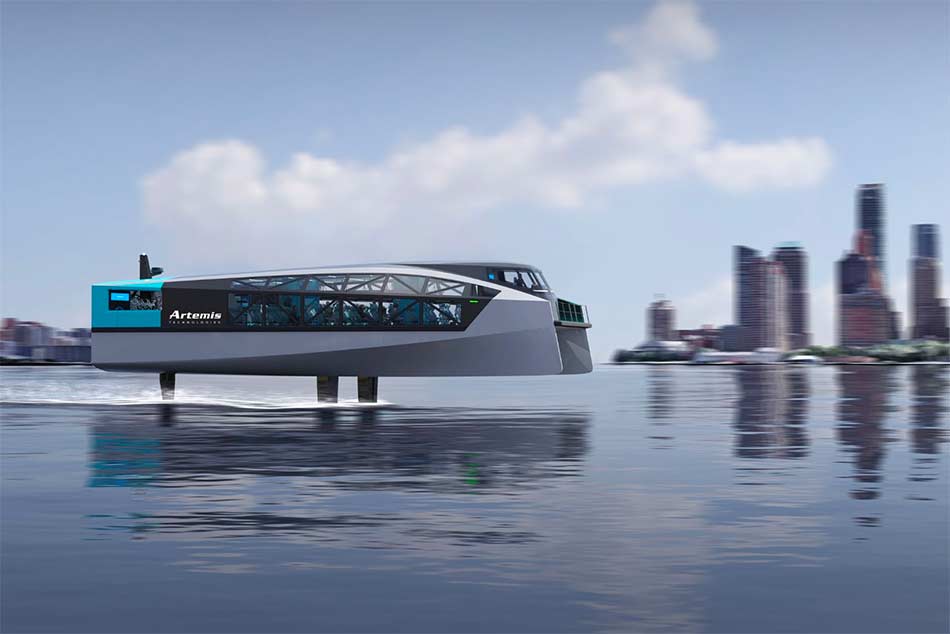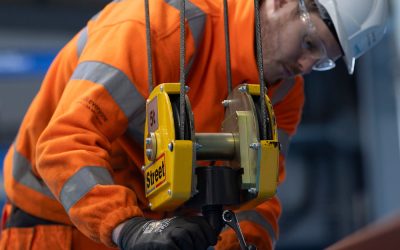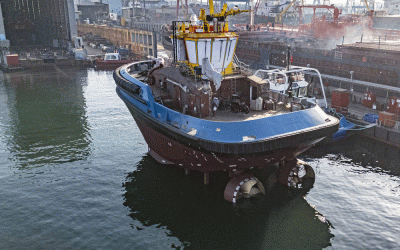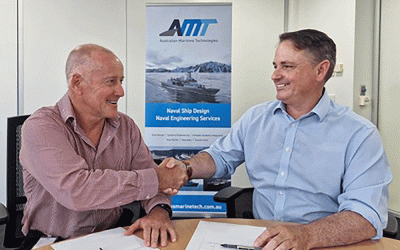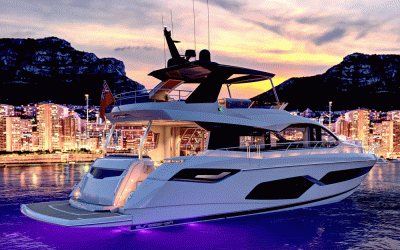With its futuristic appearance (likened, by its developers, to a spacecraft) and a reported top speed of 38knots, the forthcoming EF-24 Passenger is sure to strike a considerable contrast with the Stena Line ferries more common to the city of Belfast. Developed by Artemis Technologies, and presented in concept form in late September, the foil-assisted, 24m x 11m vessel will carry up to 150 passengers and 18 bikes. Artemis’ in-house-developed eFoiler electric propulsion system will enable the vessel to ‘fly’ over the water, resulting in numerous benefits such as: minimal wake, for minimum disruption to other craft (and marine wildlife) on busy waterways; enhanced passenger and crew comfort, with reduced likelihood of seasickness; and a quieter overall ride.
Dr. Iain Percy, Artemis CEO, comments: “The EF-24 Passenger is going to really turn on its head intercity and within-city transport. This is going to be the cheapest [and] least disruptive way to decarbonise our cities, and then it’s going to be the most enjoyable experience for passengers.” In foiling mode, the vessel will have a range of 115nm at 25knots.
Artemis says that vessels equipped with the eFoiler system, which runs off a marinised 800v battery energy storage system, can operate “with up to 90% lower fuel costs” compared to a traditionally designed, diesel-powered ferry. Using the EF-24 Passenger as an example, the company predicts that daily operations covering 200nm at 35knots could save £2.6 million (US$2.9 million) annually in fuel costs. As a side benefit, this scenario would also prevent the annual release of 8,000tonnes of CO2 equivalent.
The EF-24 Passenger will be propelled by two all-electric Artemis e-Pod propulsion units. Artemis says: “Independent control of each e-Pod is utilised during flight, displacement mode and while docking, ensuring excellent manoeuvrability and also providing redundancy.” The company has developed a novel modular battery concept to address the specific challenges of maritime applications. We have built our battery solution on proven automotive grade battery cell technology,” says Artemis. The modularity allows us to configure our vessels with the “right amount” of batteries for any given target application, without sacrificing safety or performance.” The EF-24 Passenger can carry up to 4.2MWh of high-performance Li-ion batteries.
Artemis had previously trialled the foiling system on its 11.5m all-electric workboat Pioneer of Belfast, which it launched earlier this year. Subsequent sea trials hosted in the Belfast Lough, in the face of 25knot winds, led to Pioneer… being issued a UK Loadline Exemption as a result of meeting MCA’s Workboat Code.
While the initial EF-24 Passenger will carry 150 pax, the eFoiler system could also be adopted by larger passenger vessels with capacities up to 350 persons, Artemis says. Other features will include overhead storage, baby-change facilities and charging points for the passengers’ electronic devices. With safety in mind, the vessel will also incorporate a high-speed collision avoidance system, to steer it away from debris, marine wildlife and other in-water objects.
The EF-24 Passenger is scheduled for a summer 2024 launch, with the first-in-class to be named Zero. The vessel will be operated by Condor Ferries, a long-term provider of ferry services in the Channel Islands, and the pilot service will be between Belfast and Bangor (Northern Ireland): a distance of approximately 21km. Following the launch of Zero, customer deliveries of the EF-24 Passenger are expected to commence in 2025.
